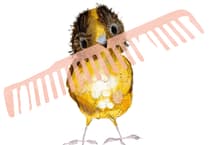A NURSE who was recognised in the New Year Honours has been at the forefront of preparing hospital staff to cope with a second wave of the coronavirus pandemic.
Louise Maltby is an intensive care unit matron with Ashford and St Peter’s hospitals, working 13 or more hours a day as the number of patients admitted with the disease increases rapidly.
Louise, 45, who lives in Woking, was awarded the British Empire Medal (BEM) for services to nursing during the crisis. She has been focusing on training ward and theatre nurses in intensive care practices.
“The first wave of COVID-19 took hold so rapidly that it was difficult to prepare for it,” she said. “Staff were redeployed from other areas of the hospital to help the team in ICU and, although we tried to make it as easy as possible for them, it was understandably a really difficult transition to make during such a challenging time.
“We used the benefits of the experience gained during the first wave to be ready for the second wave.”
Louise, who qualified as a nurse nine years ago, is a clinical practice educator for critical care, responsible for all-round ICU education.
She has been overseeing the training of nurses from other departments in intensive care work. Before the second wave hit, these nurses were spending time in ICUs so that they are better prepared for their time in ICU if they are required to work there.
“The benefit is that staff across the trust have intensive care experience, and it has helped them to develop new skills which they can take back to their own areas,” she said.
The first wave happened quickly but the second is having more of an impact on patient numbers, said Louise, who is one of two ICU matrons.
“We have increased the number of intensive care beds and they have to have sufficient staff to provide the level of care required. The number of beds we need is increasing on a daily basis.”
Her role as a matron also includes a responsibility for staff wellbeing. “We are making sure the team take care of their own health and are helping them deal with anxiety. We’re also trying to encourage staff to take some time off where possible. It’s a balance between working extra hours and having time off to rest and re-charge.
“The new COVID strain is increasing anxiety levels and staff do remember how awful it was last time.”
Another part of her role is to ensure intensive care staff have sufficient protective equipment such as facemasks, gloves and gowns. “The trust has enough PPE and I have every confidence it will not run out. We learned a lot from last time about what is needed.”
Louise decided she wanted to be a nurse from the age of eight, when she joined the Woking Red Cross branch and was a member until she was 16.
She studied for qualifications while working as an NHS community health care assistant, looking after housebound patients and taking blood tests. She went on to train as a nurse, sponsored by Surrey Primary Care Trust, and qualified at Surrey University.
Louise has two sons – Connor, 25, who gained a PhD in neuroscience last year and is a researcher in the US, and Harrison, 18, who is studying sports science.
“Harrison is really looking after me,” said Louise, who was on her first day off in a week when interviewed. “He always has a cooked dinner ready for me when I get home after a shift, so that I can have a bath and a lovely meal.”




